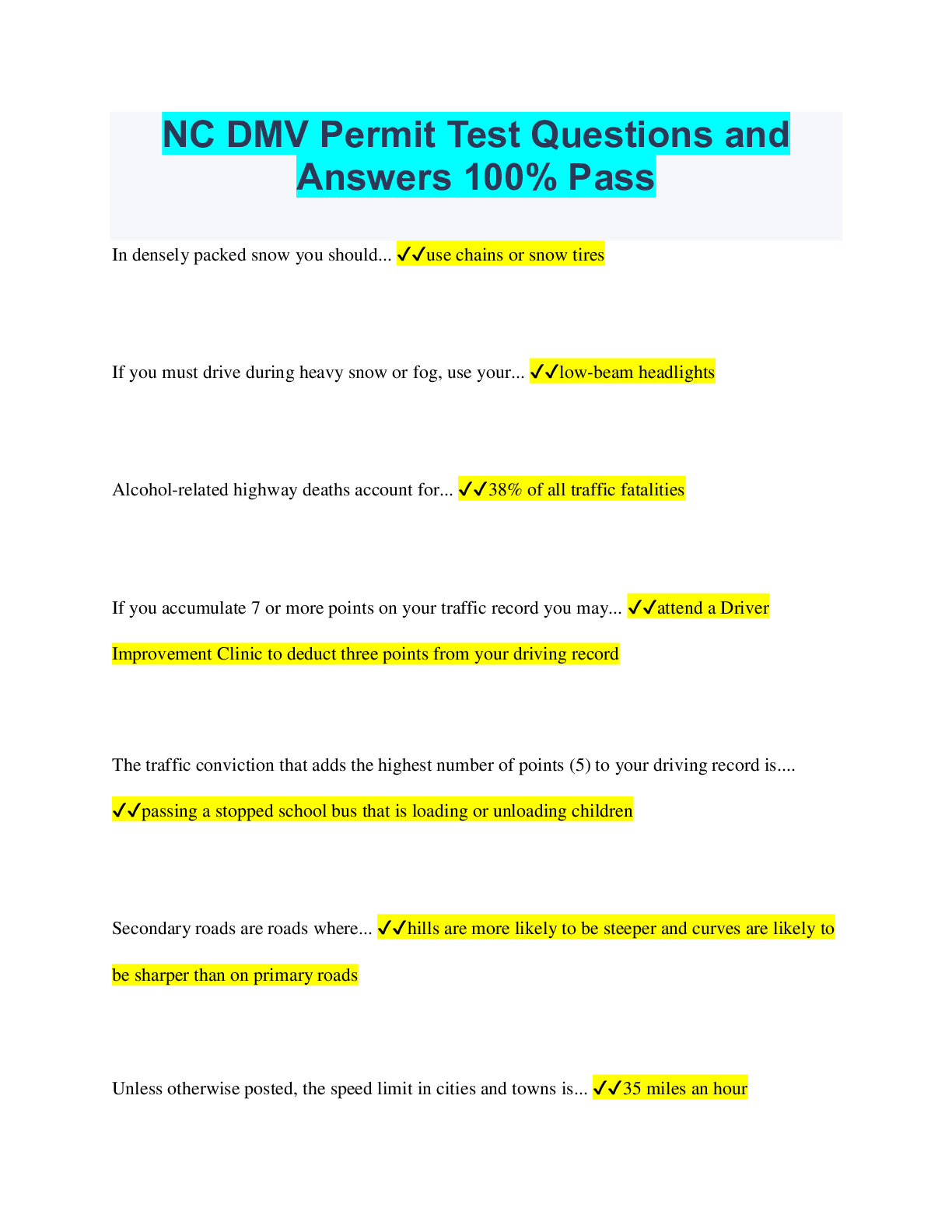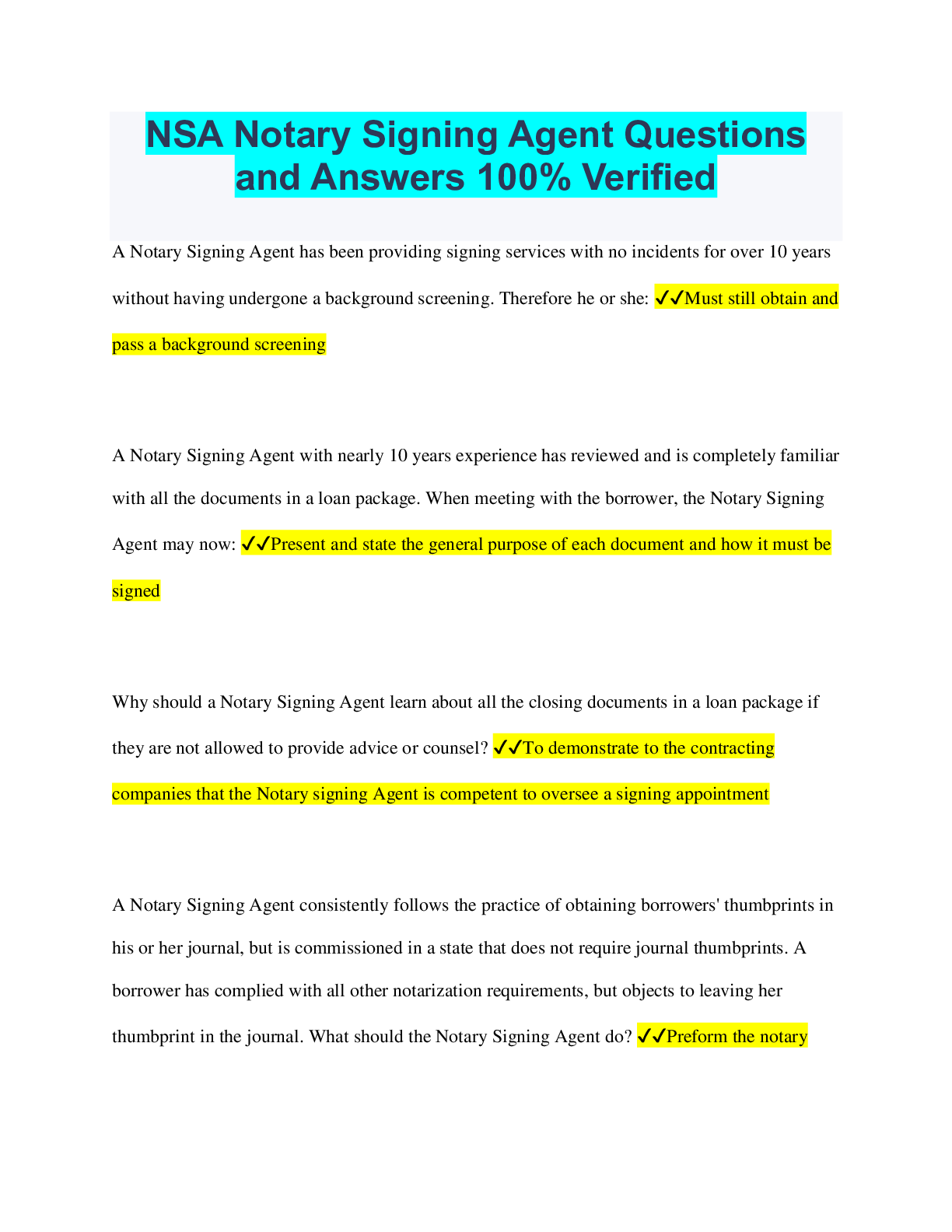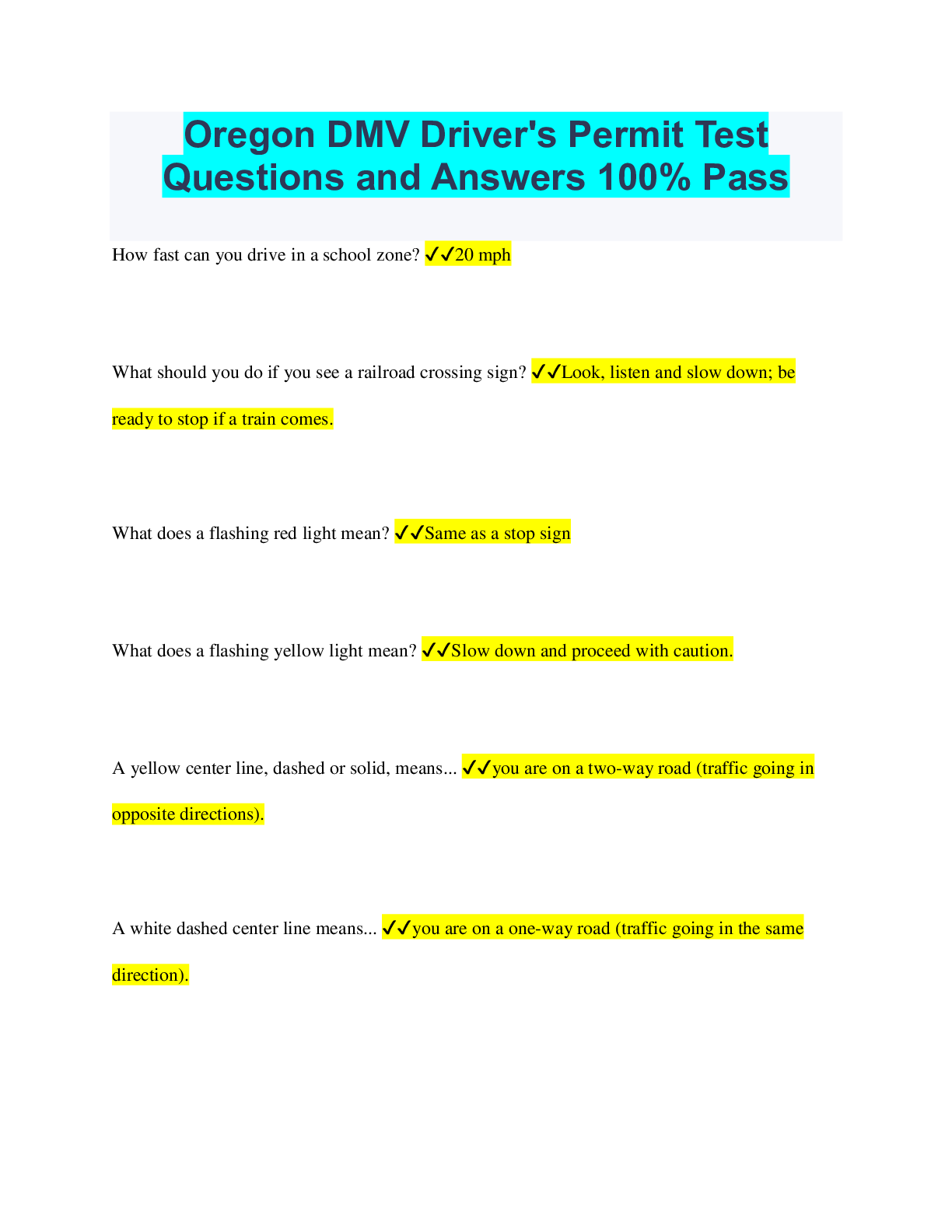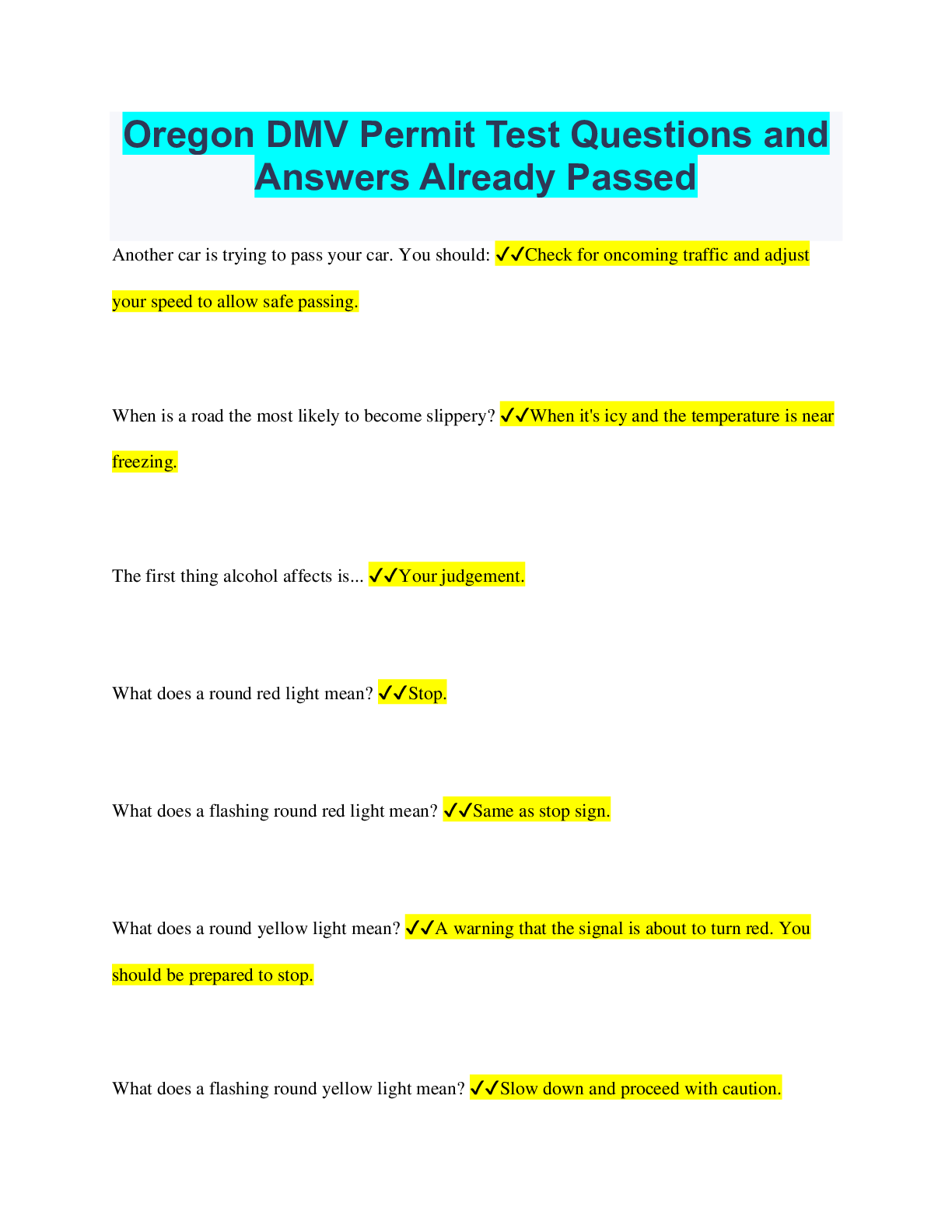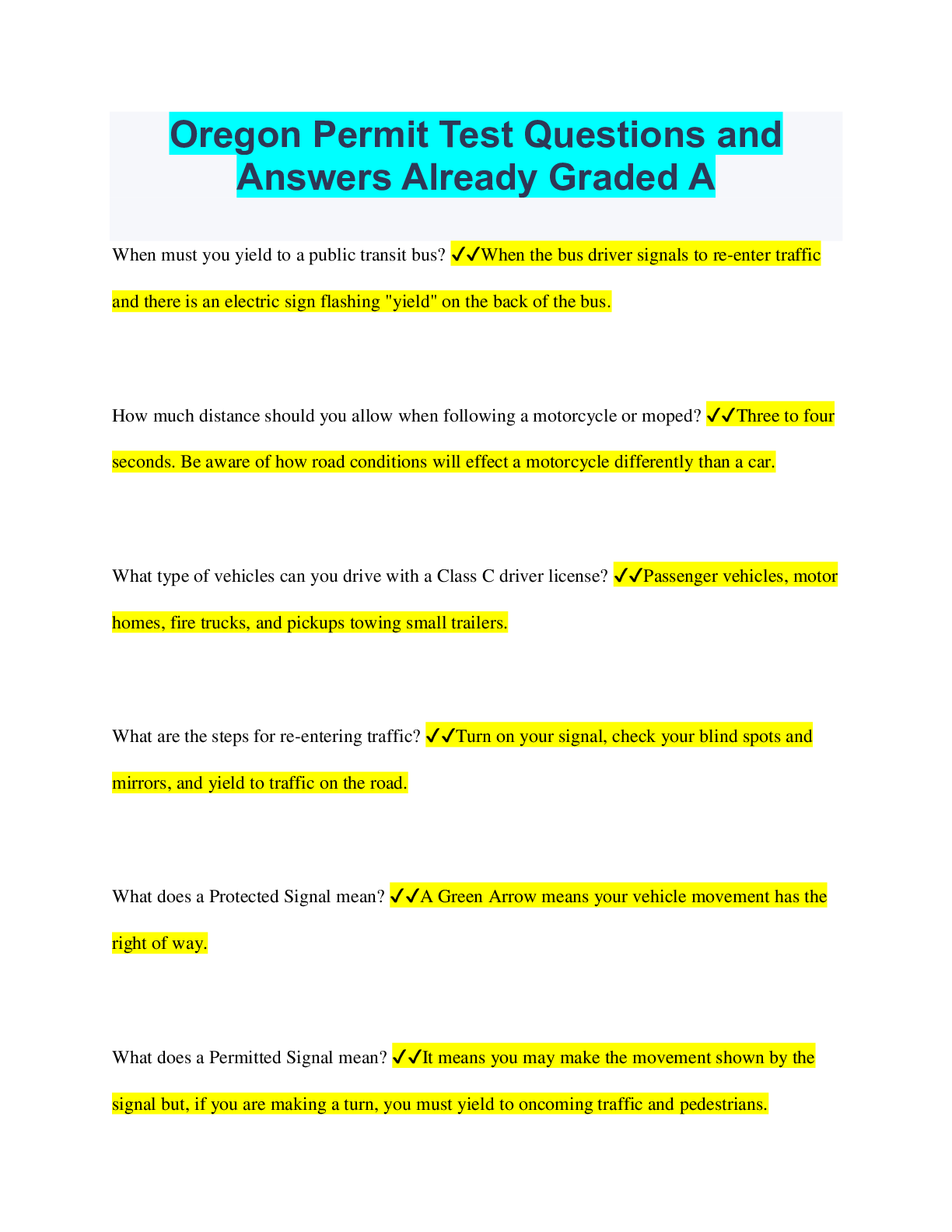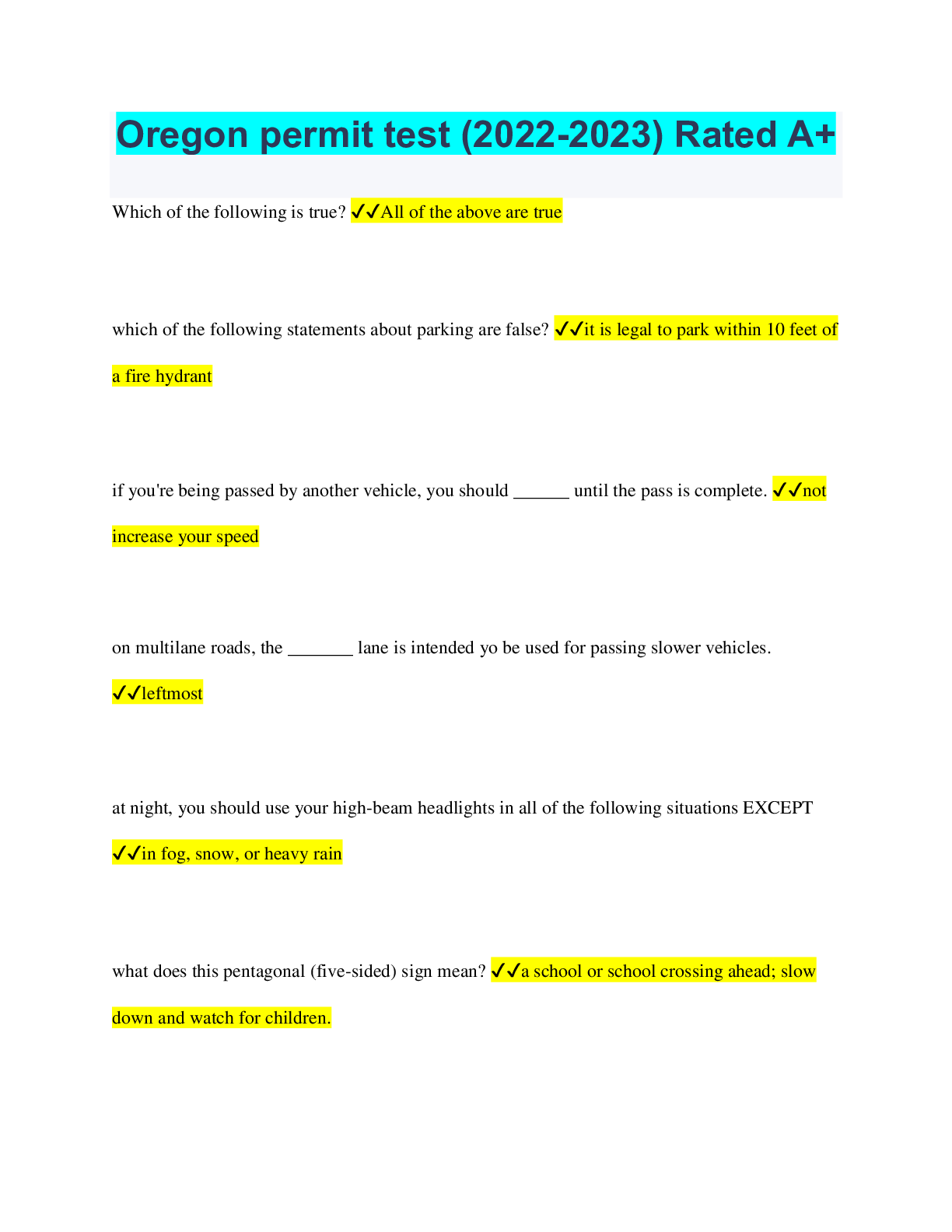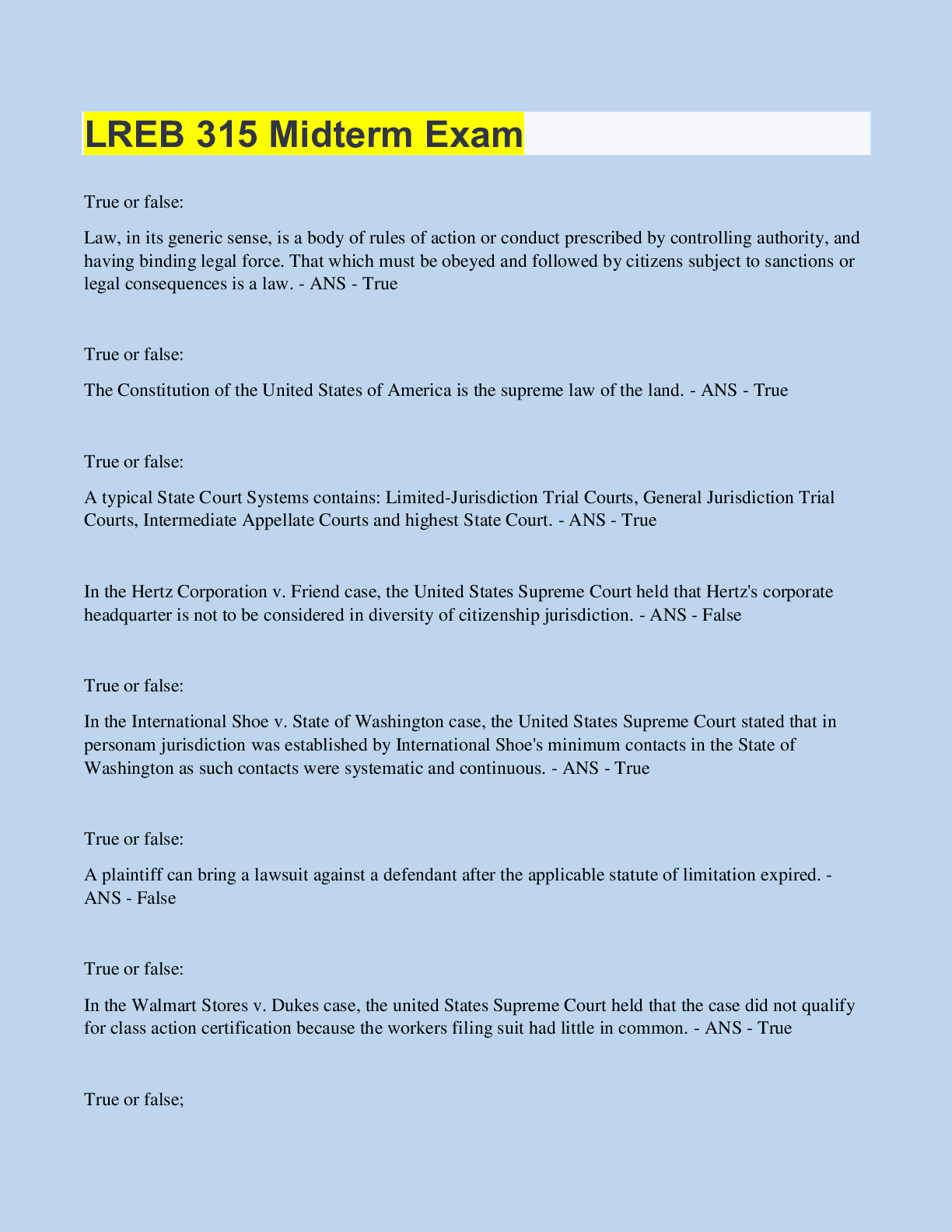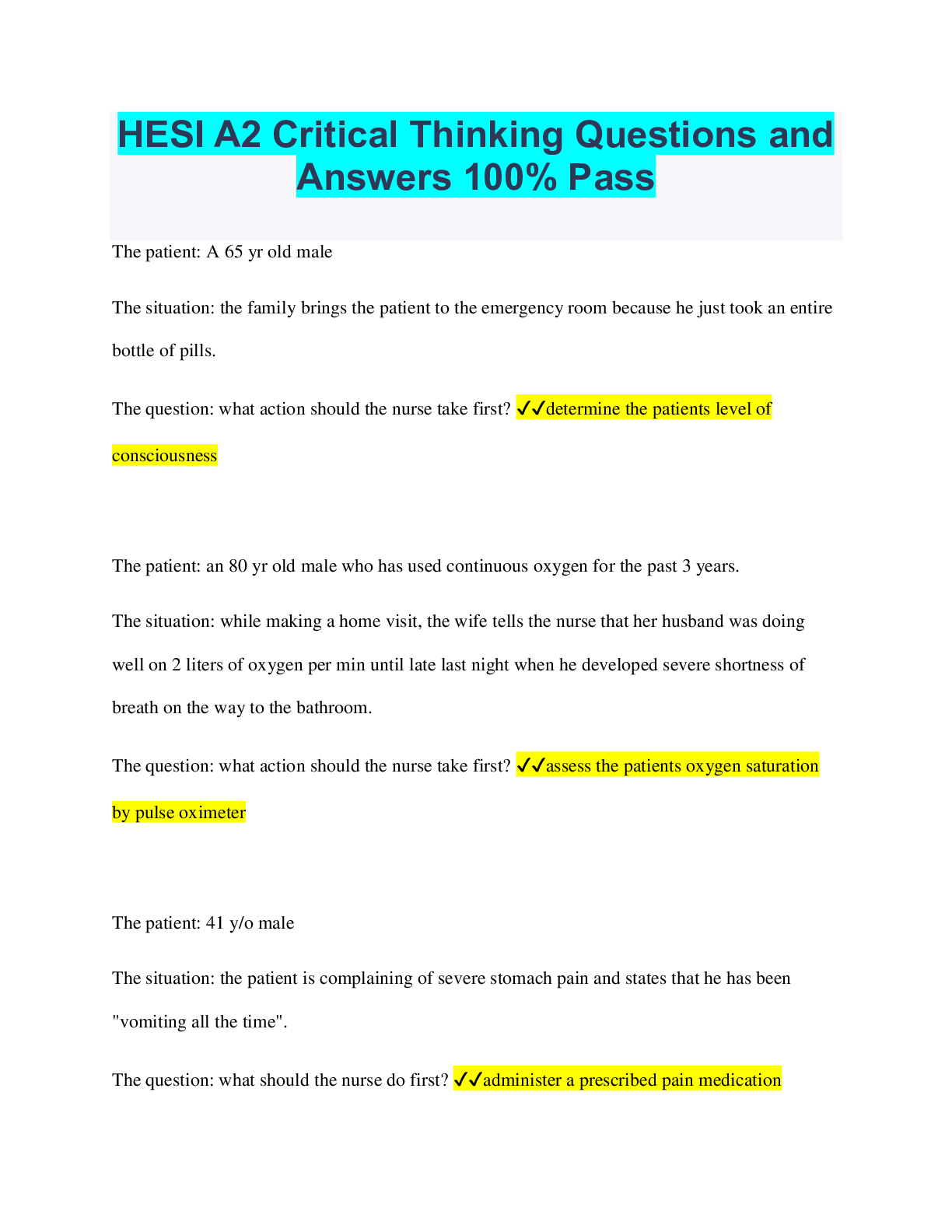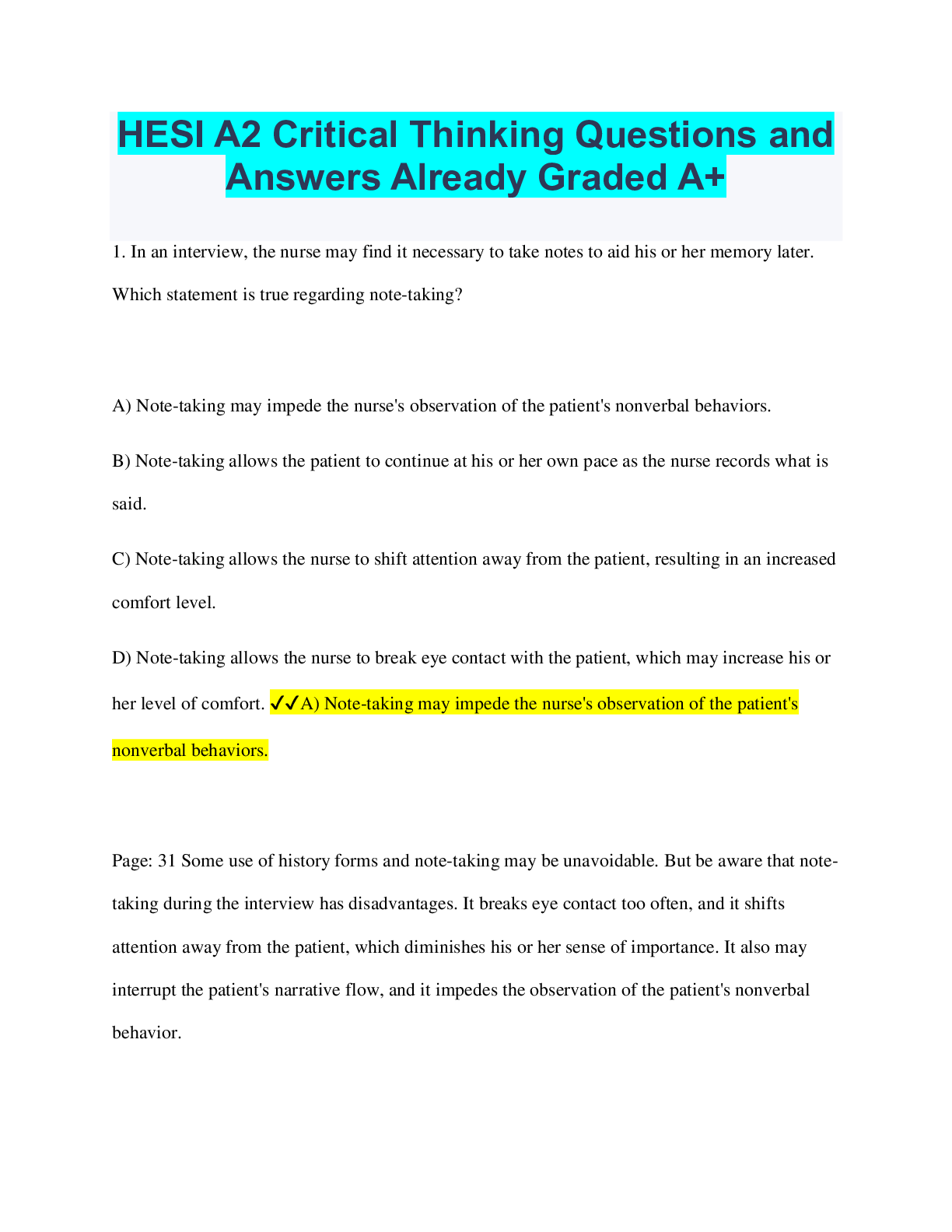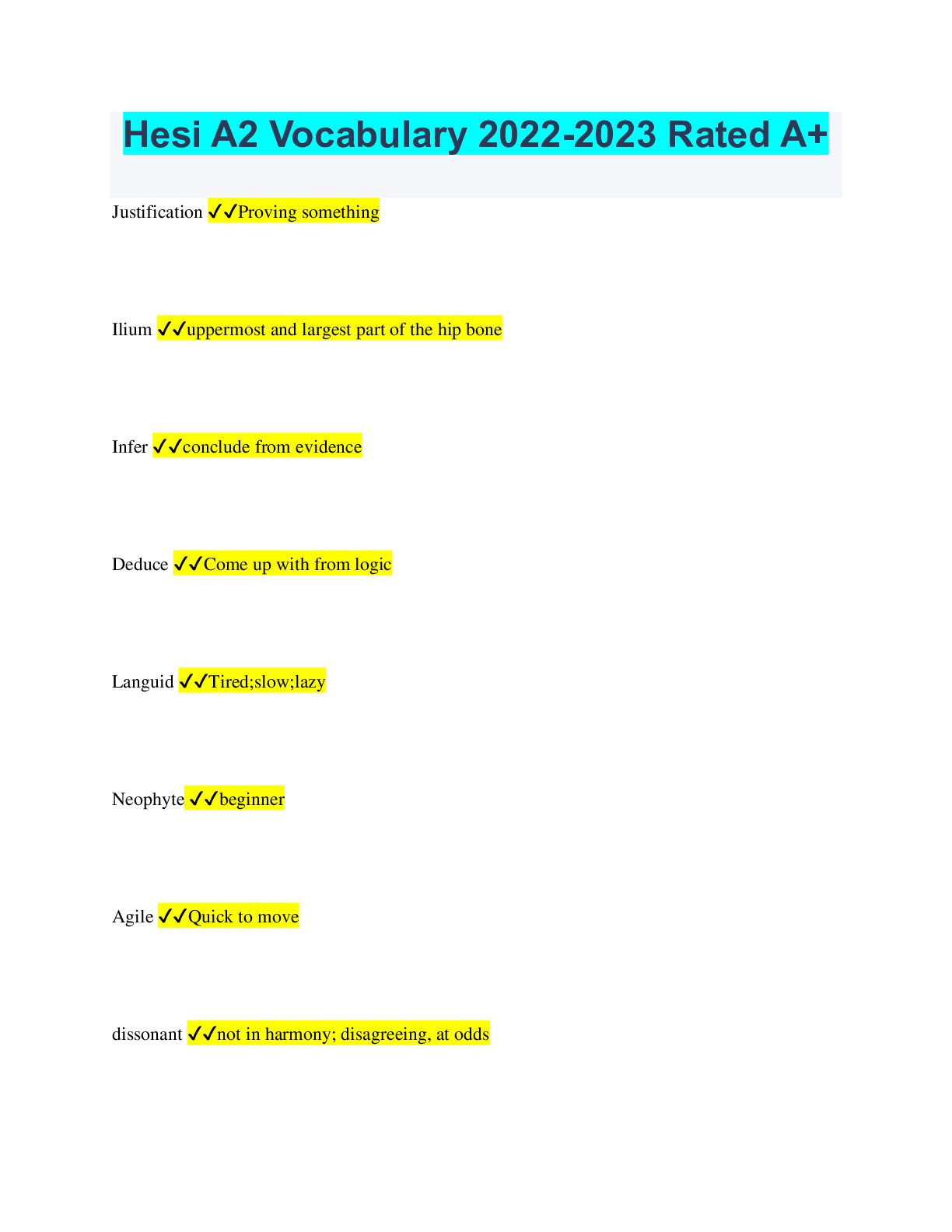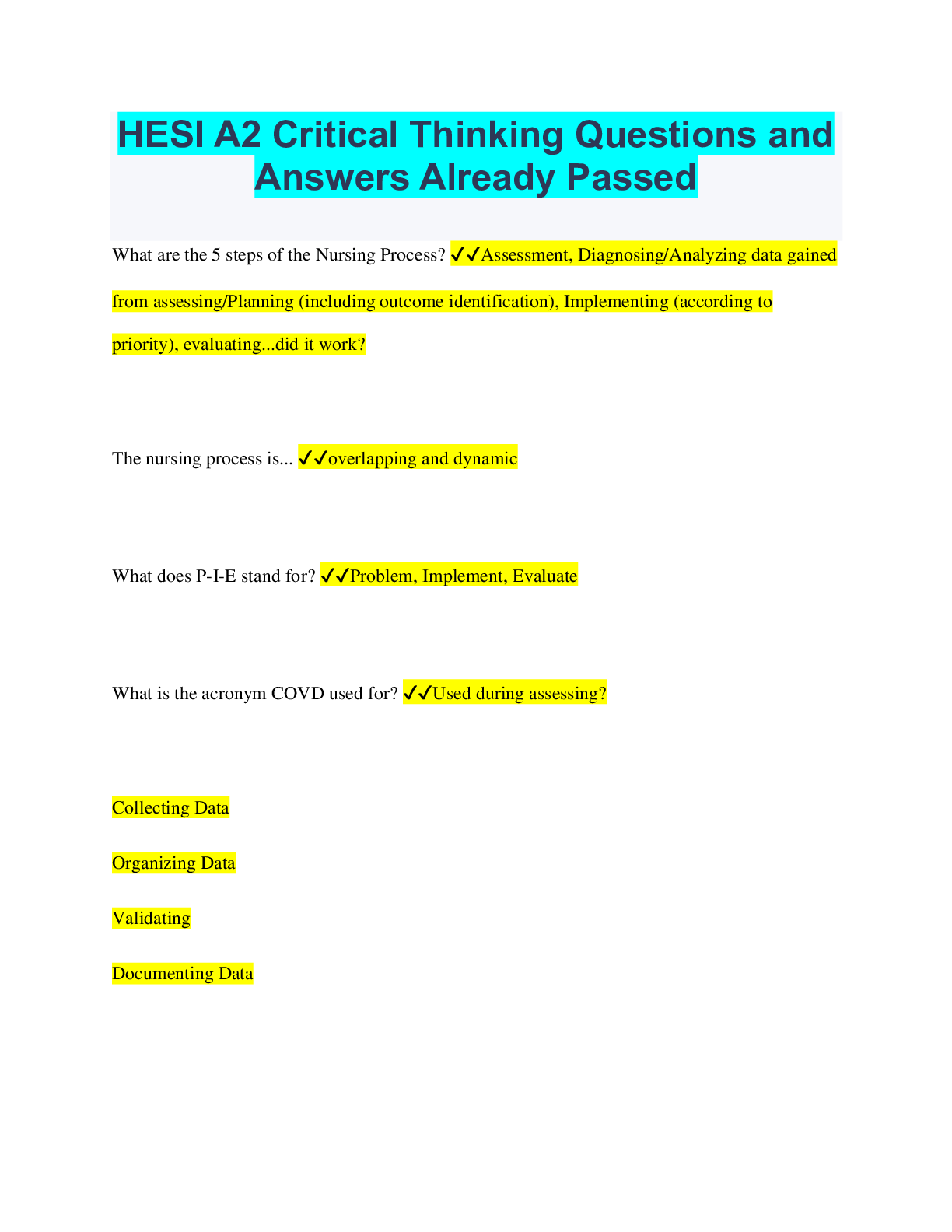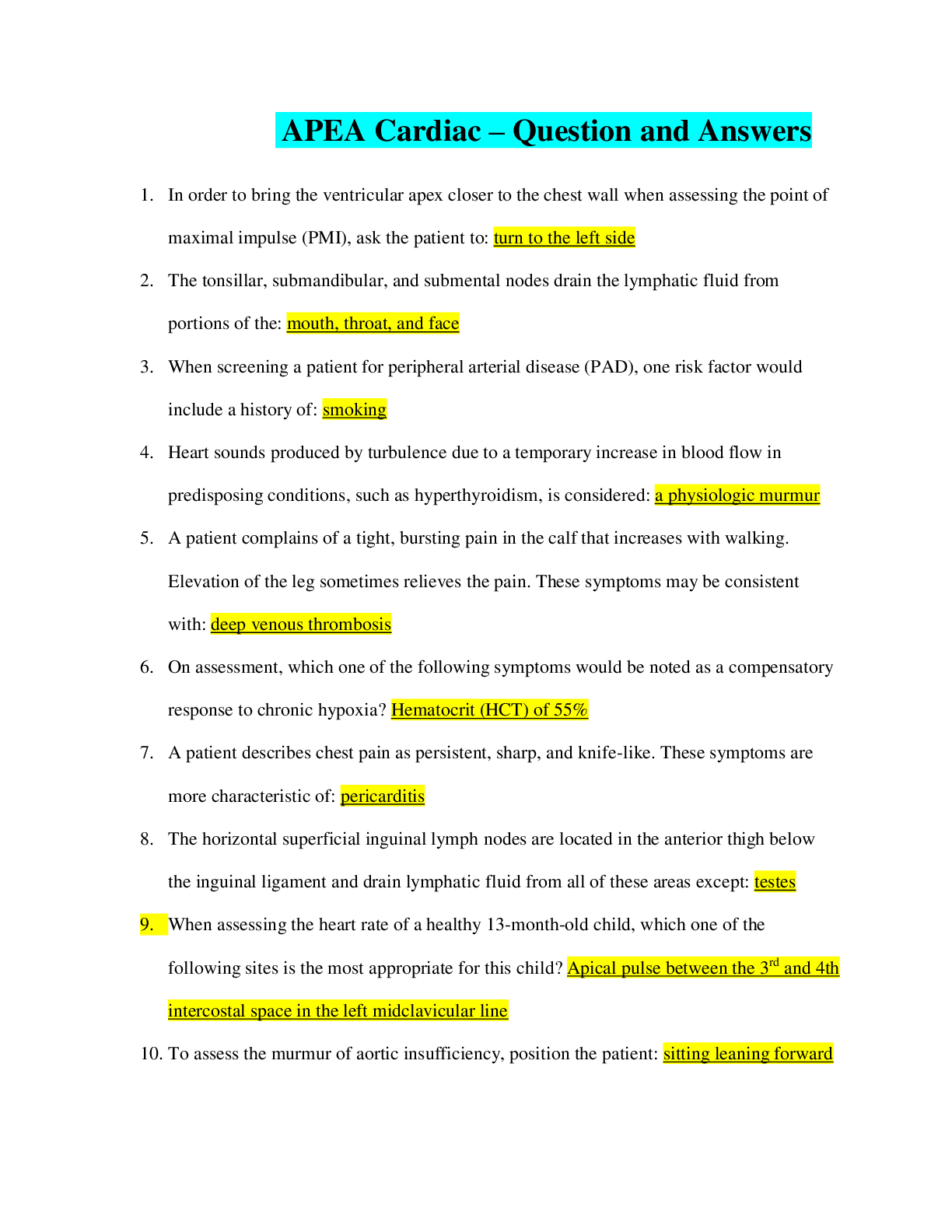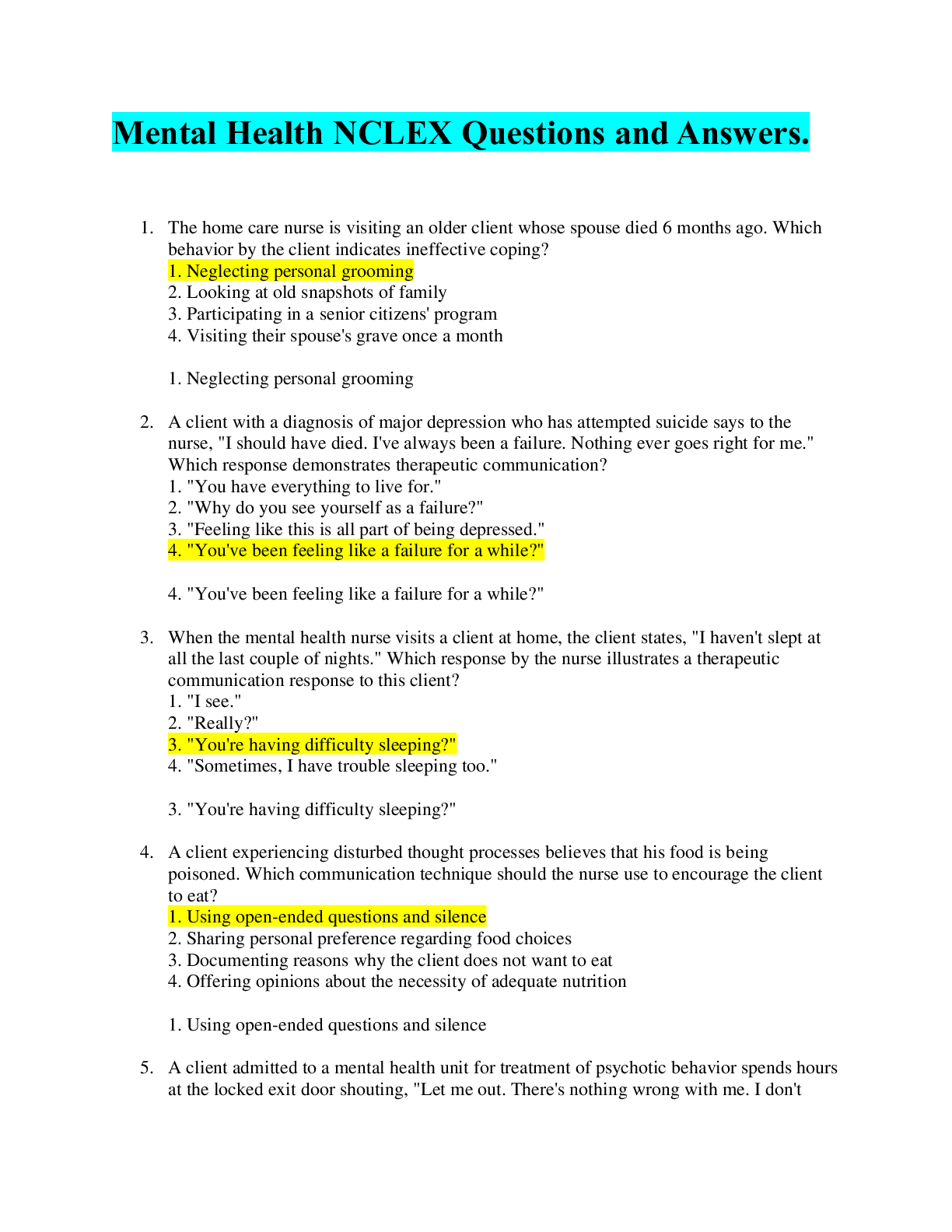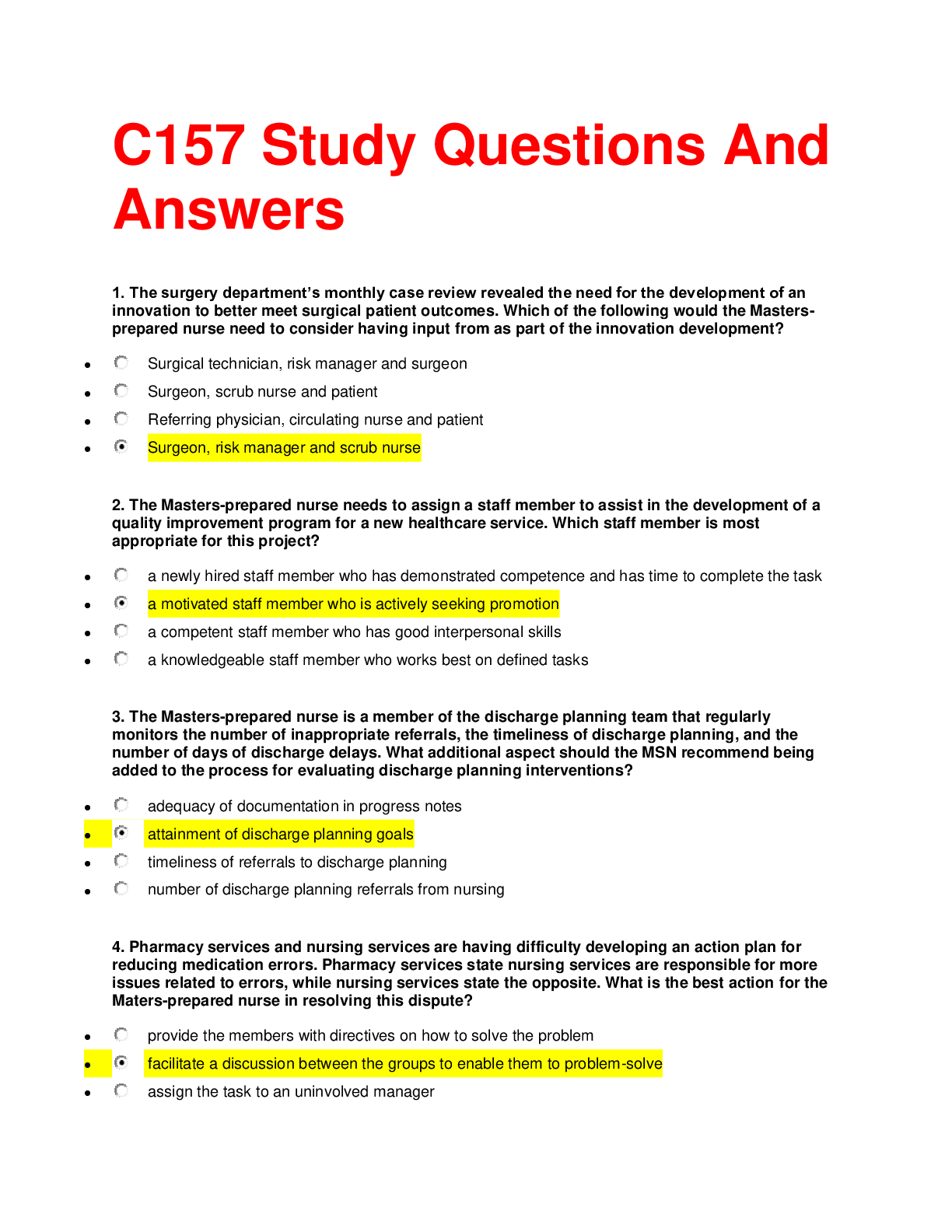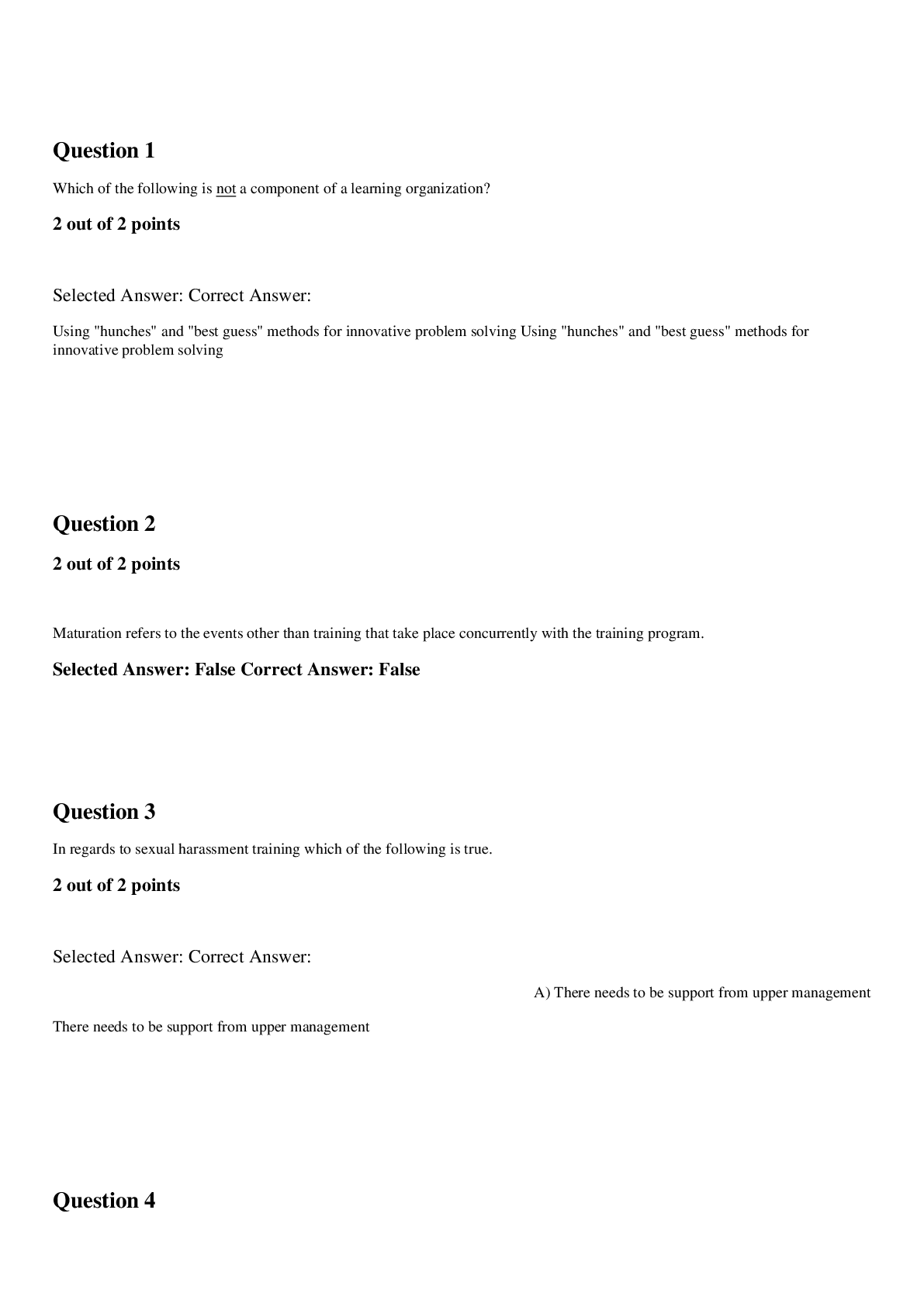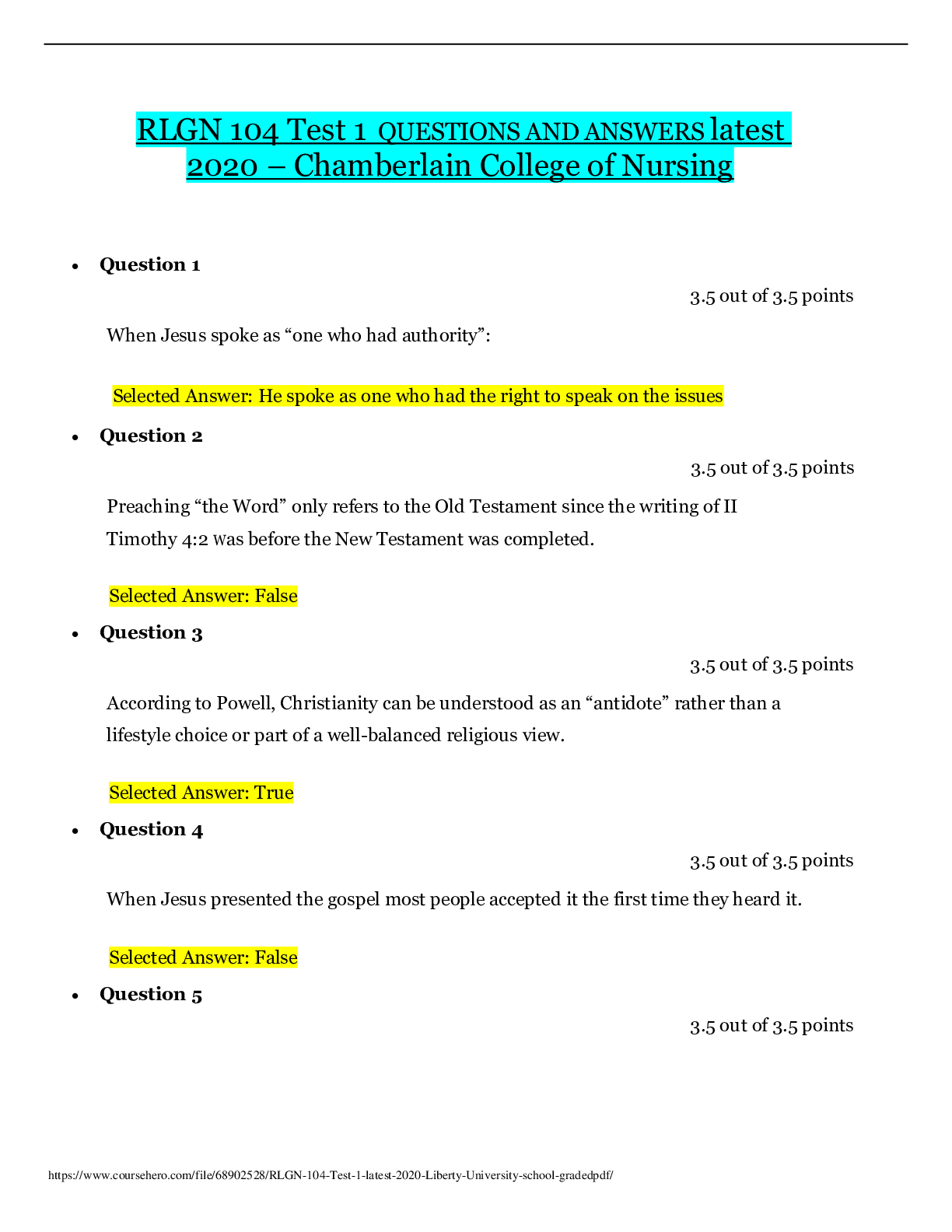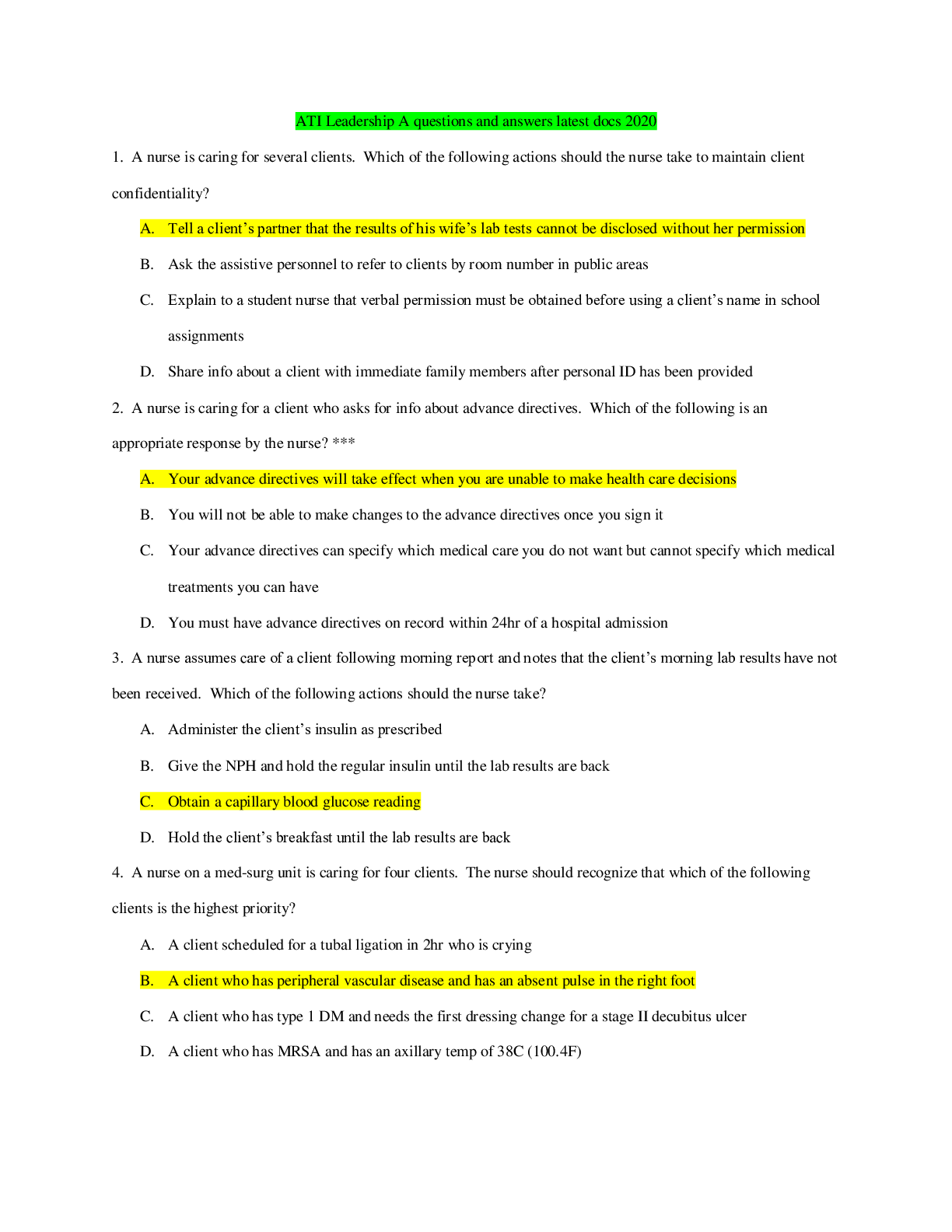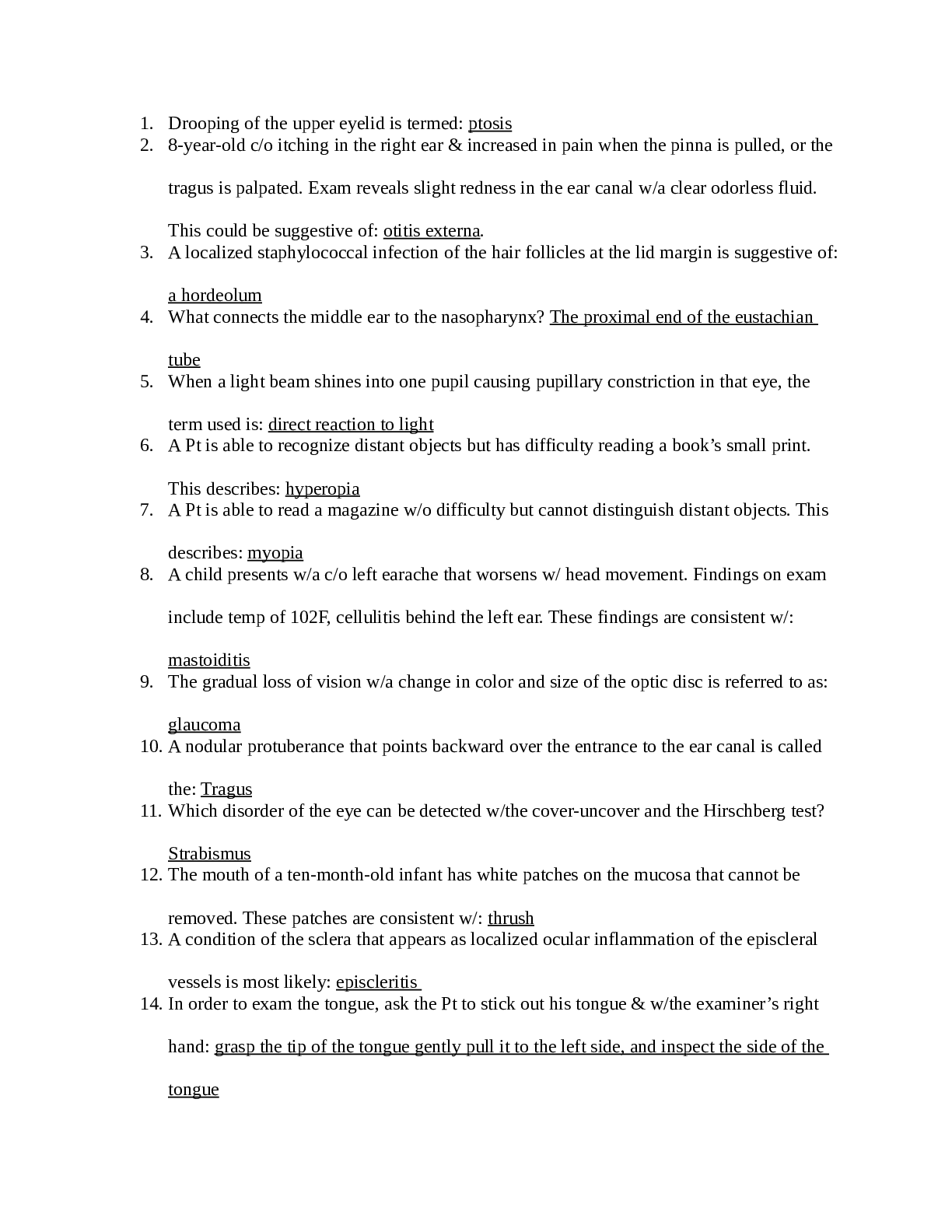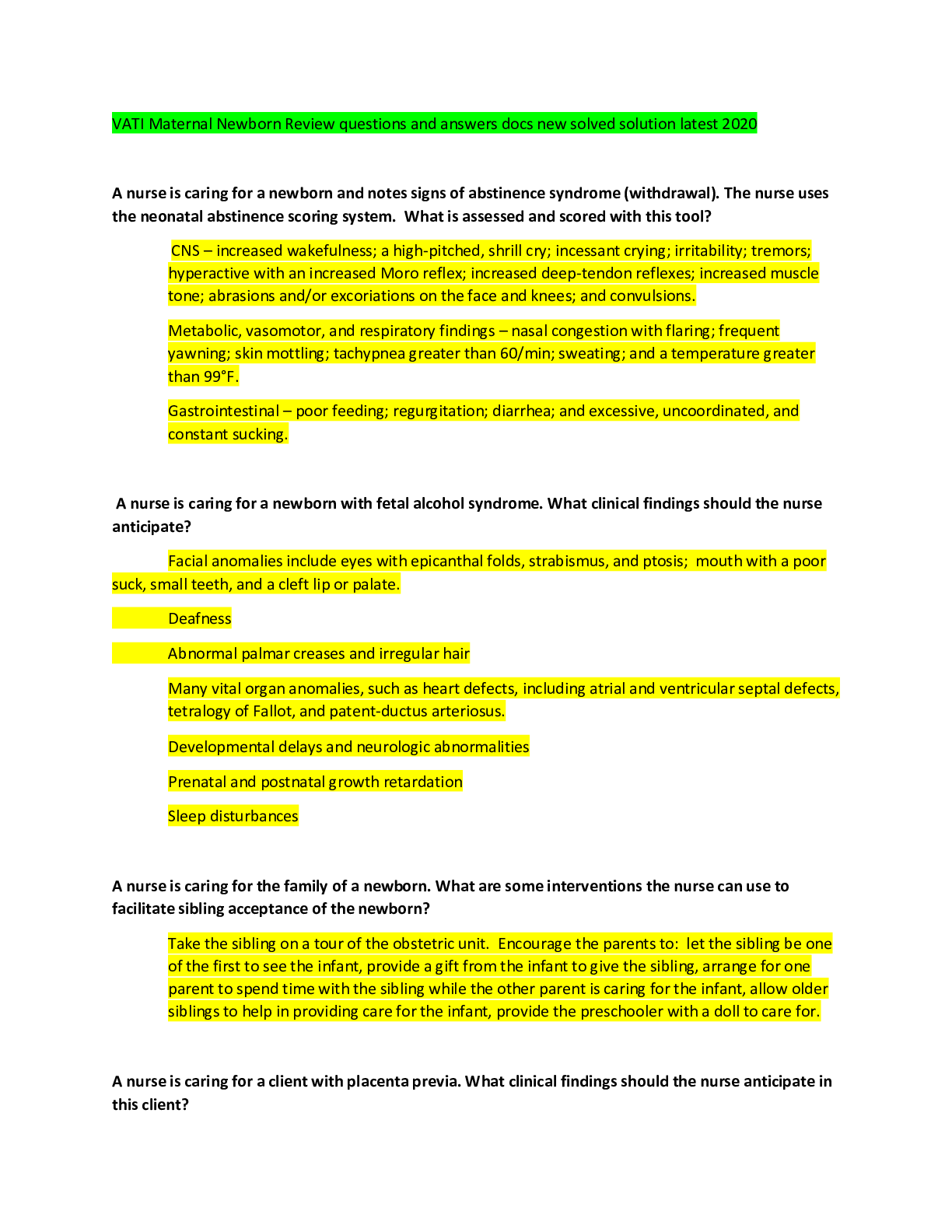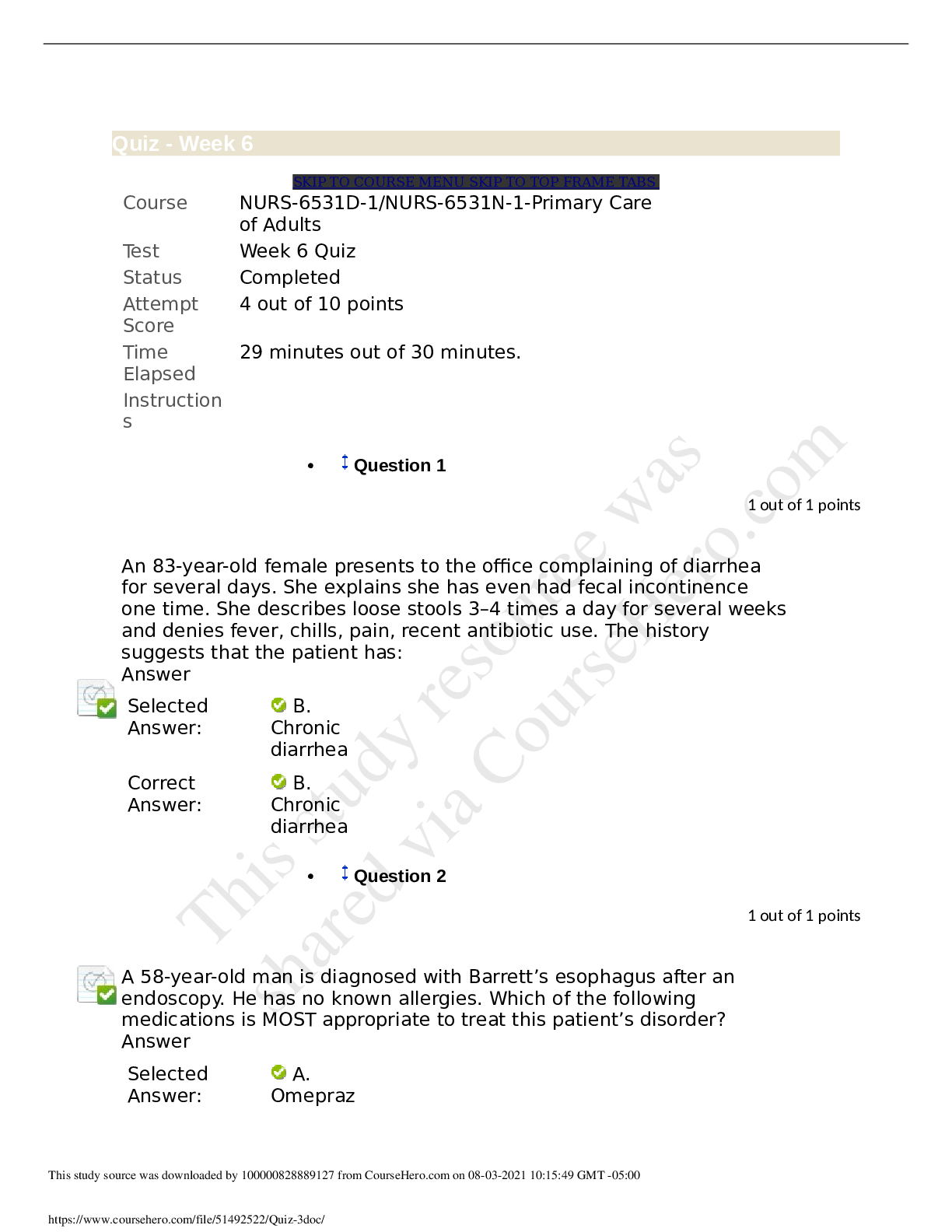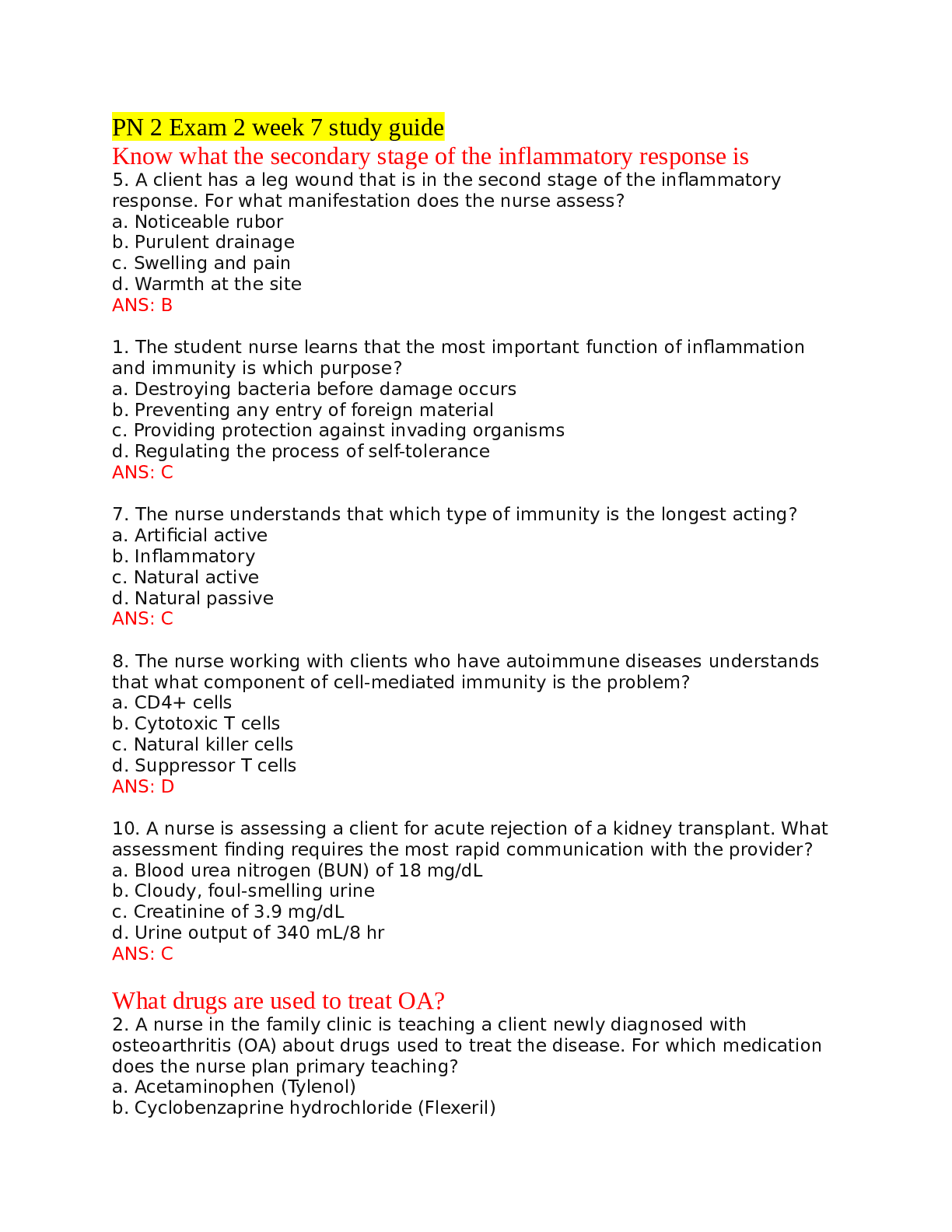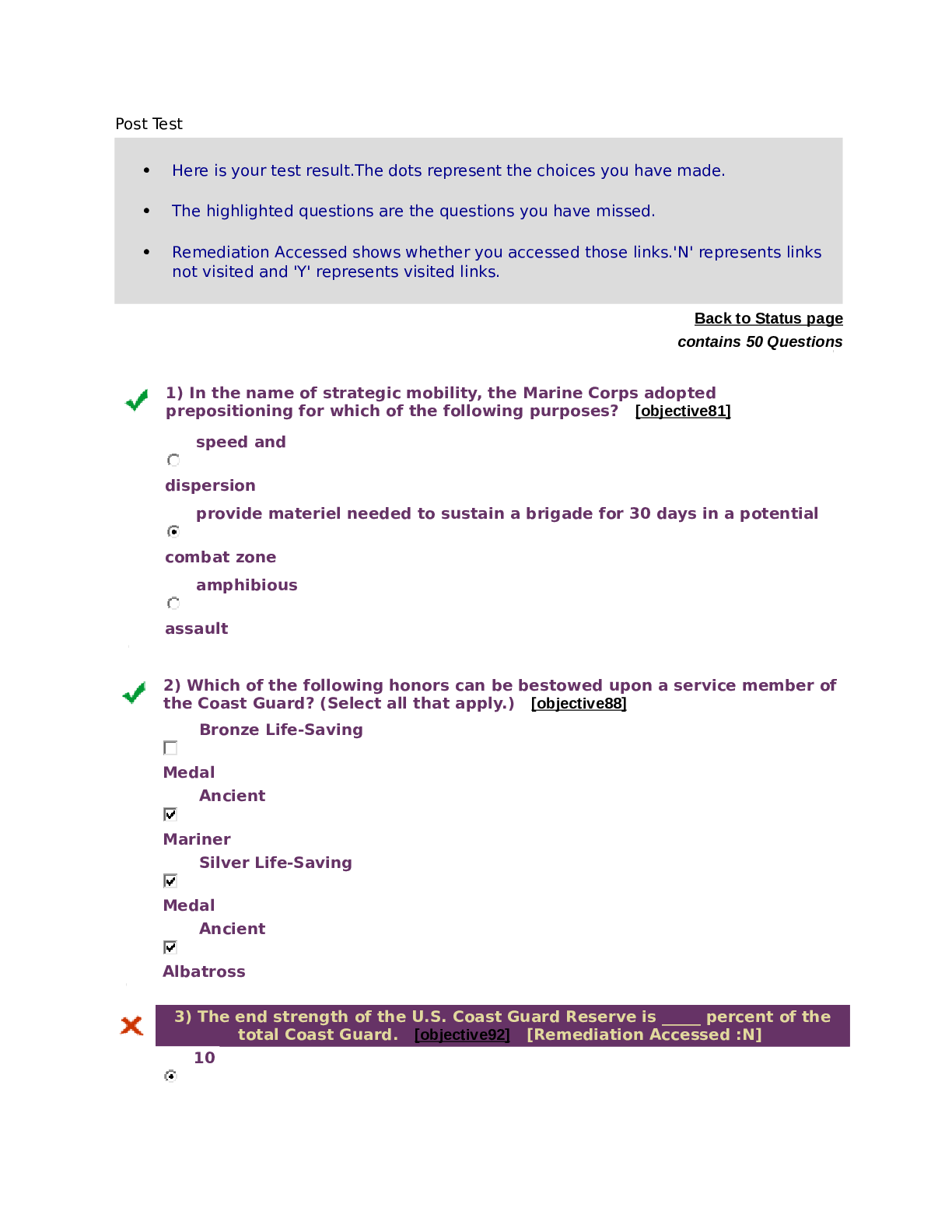*NURSING > QUESTIONS & ANSWERS > VATI Maternal Newborn Review Questions and Answers Latest Updated Rated A (All)
VATI Maternal Newborn Review Questions and Answers Latest Updated Rated A
Document Content and Description Below
VATI Maternal Newborn Review A nurse is caring for a newborn and notes signs of abstinence syndrome (withdrawal). The nurse uses the neonatal abstinence scoring system. What is assessed and scored w... ith this tool? CNS – increased wakefulness; a high-pitched, shrill cry; incessant crying; irritability; tremors; hyperactive with an increased Moro reflex; increased deep-tendon reflexes; increased muscle tone; abrasions and/or excoriations on the face and knees; and convulsions. Metabolic, vasomotor, and respiratory findings – nasal congestion with flaring; frequent yawning; skin mottling; tachypnea greater than 60/min; sweating; and a temperature greater than 99°F. Gastrointestinal – poor feeding; regurgitation; diarrhea; and excessive, uncoordinated, and constant sucking. A nurse is caring for a newborn with fetal alcohol syndrome. What clinical findings should the nurse anticipate? Facial anomalies include eyes with epicanthal folds, strabismus, and ptosis; mouth with a poor suck, small teeth, and a cleft lip or palate. Deafness Abnormal palmar creases and irregular hair Many vital organ anomalies, such as heart defects, including atrial and ventricular septal defects, tetralogy of Fallot, and patent-ductus arteriosus. Developmental delays and neurologic abnormalities Prenatal and postnatal growth retardation Sleep disturbances A nurse is caring for the family of a newborn. What are some interventions the nurse can use to facilitate sibling acceptance of the newborn? Take the sibling on a tour of the obstetric unit. Encourage the parents to: let the sibling be one of the first to see the infant, provide a gift from the infant to give the sibling, arrange for one parent to spend time with the sibling while the other parent is caring for the infant, allow older siblings to help in providing care for the infant, provide the preschooler with a doll to care for. A nurse is caring for a client with placenta previa. What clinical findings should the nurse anticipate in this client? This study source was downloaded by 100000831988016 from CourseHero.com on 03-19-2022 14:51:05 GMT -05:00 https://www.coursehero.com/file/27270279/VATI-Maternal-Newborn-Reviewdocx/ Vaginal bleeding is usually bright red. Can range from minimal to severe and life-threatening. There is generally no pain experienced. It typically presents in the second or third trimester. The uterus is soft, relaxed and nontender with normal tone. The fundal height is greater than usually expected for gestational age. Fetus may be in a breech, oblique, or transverse position. Reassuring FHR. Vital signs within normal limits. Decreasing urinary output may be a better indicator of blood loss. Immediately after rupture of amniotic membranes, a client states that she can feel something in her vagina and the nurse is able to visualize the umbilical cord protruding from the introitus. Discuss emergency nursing care measures the nurse should take. Call for assistance immediately. Notify the provider. Use a sterile-gloved hand, insert two fingers into the vagina, and apply finger pressure on either side of the cord to the fetal presenting part to relieve pressure on the cord. Apply a warm, sterile, saline-soaked towel to the visible cord to prevent drying and to maintain blood flow. Provide continuous electronic monitoring of FHR for variable decelerations, which indicate fetal asphyxia and hypoxia. Administer oxygen at 8-10 liters/minute via a face mask to improve fetal oxygenation. Initiate IV access and administer IV fluid bolus. Prepare for cesarean birth if other measures fail. Inform and educate the client and her partner about the interventions. A nurse is caring for a client who is to have a forceps-assisted birth due to breech presentation. What nursing actions should be taken to prepare the client for this procedure? Explain the procedure to the client and her partner; assist the client into the lithotomy position; assess to ensure that the client’s bladder is empty, and catheterize if necessary; assess to ensure that the fetus is engaged and that membranes have ruptured; assess and record FHR before, during, and after forceps assistance. What are risk factors for endometritis? What are manifestations of endometritis? Risk factors include cesarean birth, retained placental fragments and manual extraction of placenta, prolonged rupture of membranes, chorioamnionitis, internal fetal/uterine pressure monitoring, multiple vaginal examinations after rupture of membranes, prolonged labor, postpartum hemorrhage. Manifestations of endometritis include uterine tenderness and enlargement, dark, profuse lochia, lochia that is either malodorous or purulent, temperature greater than 38°C typically on the third to fourth postpartum day, and tachycardia. [Show More]
Last updated: 2 years ago
Preview 1 out of 3 pages

Buy this document to get the full access instantly
Instant Download Access after purchase
Buy NowInstant download
We Accept:

Reviews( 0 )
$13.00
Can't find what you want? Try our AI powered Search
Document information
Connected school, study & course
About the document
Uploaded On
Mar 19, 2022
Number of pages
3
Written in
Additional information
This document has been written for:
Uploaded
Mar 19, 2022
Downloads
0
Views
127


